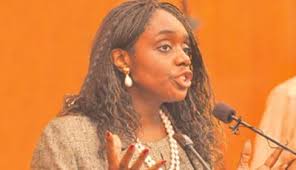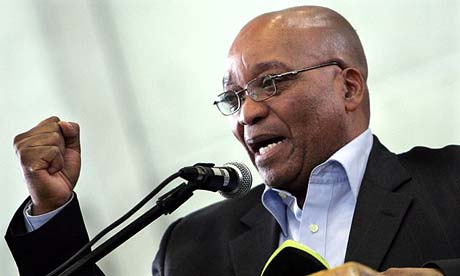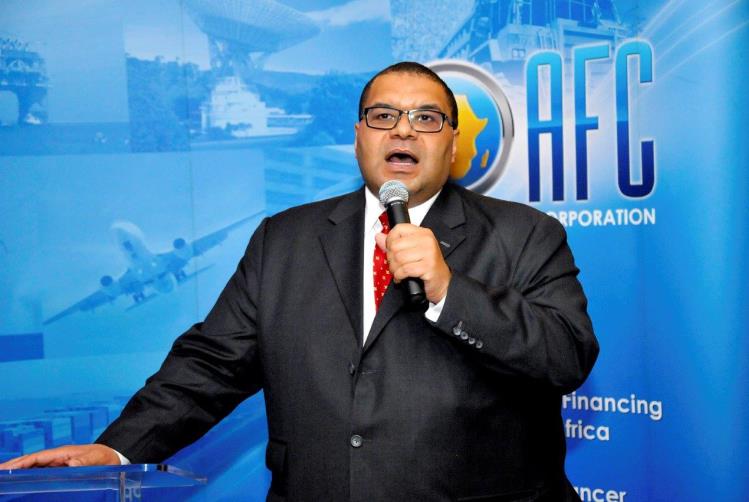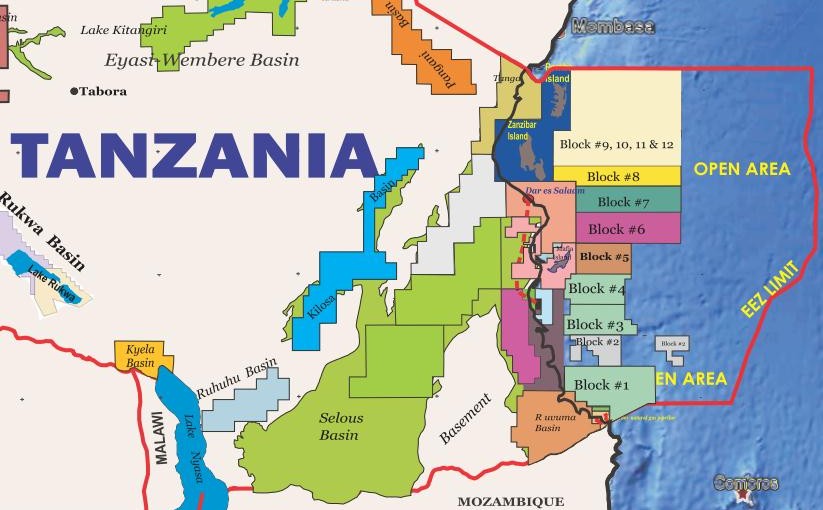Investors are lining up to buy dollar bonds Nigeria is expected to issue soon despite the country's first recession in a quarter of a century, a currency crisis and budget shortfalls driven by low oil prices.
On the face of it, the $1 billion of bonds Nigeria hopes to sell by the end of March might seem unattractive, especially at a time sentiment towards African debt has soured after Mozambique missed a coupon payment.
 |
| Adeosun, finmin |
But investors hungry for higher returns in a low interest rate environment reckon Nigeria's benign debt levels, recovering foreign exchange reserves and a potential yield above 7 percent are reasons enough to look beyond the country's economic woes.
"Nigeria's starting position is one of low debt so if they price it attractively they will be able to get it done," said Claudia Calich, who manages an emerging market bond fund at M&G Investments.
Nigeria's Eurobond has been a long time coming. A year ago, Nigeria appeared to have shelved the idea in favour of a loan from China, but it embarked on an investor roadshow for the bond late last year in the United States and Britain.
Nigeria is Africa's biggest economy, a member of the Organization of the Petroleum Exporting Countries and vies with Angola for the position of top oil producer, but that also means it is very exposed to fluctuations in the oil market.
The last time Nigeria issued dollar-denominated bonds in July 2013, oil was comfortably above $100 a barrel but the slump in prices from $115 in June 2014 to just $28 a barrel by January 2016 has hurt the West African country's economy.
Crude oil sales account for two-thirds of government revenue and about 90 percent of foreign exchange earnings so the price slide, coupled with a resurgence in militant attacks on oil facilities in the Niger Delta, have had a severe impact.
UNDETERRED
According to the World Bank, Nigeria's economy probably shrank 1.7 percent in 2016, underperforming an average growth rate of 1.5 percent across sub-Saharan Africa and way behind high-flying economies such as Ivory Coast.
Foreign investment has almost ground to a halt, hobbled by a slide in the naira currency - which trades on the black market at about 40 percent below the official rate of 300 per dollar - and expectations the currency may have to be devalued again.
World Bank data shows net foreign direct investment tumbled to just over $3 billion in 2015 from nearly $9 billion in 2011 and the government needs to borrow $3.5 billion internationally this year to balance a record 2017 budget.
International lenders such as the World Bank and African Development Bank (AfDB) are also holding back on loans until Nigeria comes up with a plan to make its economy more resilient.
Yet, bond investors seem undeterred.
They argue that a Eurobond issued in dollars will shield them from currency risk and, compared to its African peers, Nigeria has a low ratio of public debt to annual economic output, implying that default is not a worry.
The ratio of Nigeria's total public debt to gross domestic product is 22 percent compared with 46 percent in Gabon, 62 percent in Ghana or 73 percent in Angola, according to estimates by Bank of America Merrill Lynch.
While businesses in Nigeria are having trouble getting hold of dollars, the countries foreign exchange reserves are on the rise again. They hit an eight-month high of $26.6 billion at the start of 2017 and have since climbed to $28.9 billion.
"The government has access to hard currency even if they are restricting the access of other agents in the economy," said Kieran Curtis, investment director at Standard Life Investments, who also plans to look at Nigeria's upcoming bond issue.
REALITY CHECK
Curtis reckons that Nigeria's low debt ratios will allow it to borrow more cheaply than Ghana. Nigeria's existing 2023 dollar bond yields about 6.7 percent, or 170 basis points lower than Ghana's 2023 bond.
Egypt, which has a credit rating of B-minus/B3/B from the main agencies, was marketing $4 billion of Eurobonds in three tranches on Tuesday, offering a 10-year bond at 7.5 percent. Nigeria is rated one to two notches higher at B/B1/B plus.
Nigeria's last 10-year bond sold in July 2013 had a 6.375 percent coupon but Exotix Partners head of fixed income research Stuart Culverhouse said a new issue would have to offer a yield of 7.0 percent to 7.5 percent.
"(Nigeria) might have to accept that people are charging more for them because of the situation. It could be a reality check," he said.
If the country were to press ahead with reforms to alleviate pressure on the naira before issuing a bond, it could help lower the cost of borrowing, M&G's Calich said.
"Then they could bring a new deal at tighter spreads. The big question is the currency regime."
Although oil prices are now expected to stabilise above $50 following OPEC's decision to curb output, there are few more clouds on the horizon.
The budget deficit for 2017 risks ballooning further as the government tries to boost the economy with record spending on roads and power.
Many also see the budget's oil output projection of 2.2 million barrels per day as optimistic. Oil production, curbed by persistent attacks in the Niger Delta, was just 1.63 million barrels a day in the third quarter and was still below 1.8 million barrels per day in December.
Second, while emerging economies have been tapping the market in near-record numbers this month, sub-Saharan African borrowers have been absent and Mozambique's coupon miss has not helped. But Calich said there were no such fears for Nigeria.
"It will take a big shock to get into that kind of distress ... we are far from that at this point."
© Reuters News

























